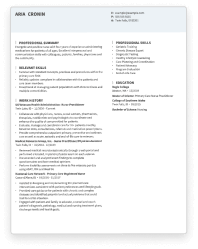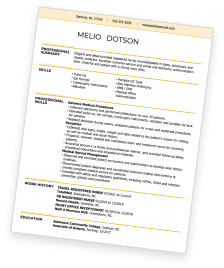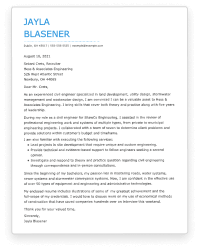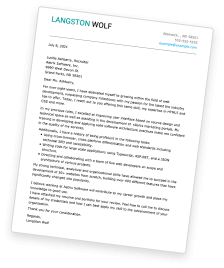Director of Security Resumes: Overview
As a Director of Security, you play a crucial role in safeguarding organizations. Your responsibilities include overseeing security protocols, managing teams, and implementing asset protection strategies.
Security directors work in many different settings, including:
- Corporate Offices
- Government Agencies
- Educational Institutions
- Healthcare Facilities
- Event Venues
To succeed in a director of security role, you must possess essential skills like risk assessment, crisis management, leadership, communication, and technical expertise.
Ready to elevate your career? Learn how to craft an impressive resume to get your next job as a director of security.
With so many resources at your disposal, you’ll be able to use a resume example for your director of security position and customize the template to highlight your best skills and experience!
Director of Security Resume: Choose a Format
Crafting a compelling director of security resume begins with choosing the right format and a well-designed template.
These critical choices are one way to tailor your resume to showcase your unique strengths and experiences.
Let’s explore the three resume formats to consider for your director of security resume.
Chronological Resumes for Director of Security
A chronological resume format is popular for most job candidates. It is a traditional format that highlights your career progression chronologically, making it the top choice of career experts.
This is because employers and recruiters highly value work experience, especially for a position like director of security, in which a candidate will want to validate their skills with experience.
Due to these reasons, chronological resumes are the most ATS-friendly.
Showcase your extensive experience in security leadership roles. This format perfectly emphasizes a strong track record and demonstrates career growth.
In a chronological resume, you will list your relevant job experience chronologically, beginning with your most recent position and working backward. Then, beneath each job entry, you provide bulleted sentences detailing your responsibilities and accomplishments in each position.
This resume format can be easily tailored to each security director position you apply for. Make your work history section stand out by focusing on experience and achievements most relevant to the job description.
Functional Resumes for Director of Security
The next option for your director of security resume is a functional resume format. This format emphasizes your skills and qualifications instead of your work history, making it a good choice for someone without relevant work experience.
It is also ideal for someone transitioning careers because it allows you to showcase your expertise in team management, risk assessment, and strategic planning without providing a detailed work history.
However, it is important to note that most employers place a high value on a detailed work history, and a functional resume is not usually compatible with automated applicant tracking systems.
That doesn’t mean a functional resume can’t work for you, but it is important to understand its limitations.
Combination Resumes for Director of Security
The third option is to consider taking elements from the formats above to create a combination resume. This format focuses equally on your skills and job experience, providing a well-balanced profile to potential employers.
A combination format showcases your skills first and then provides a chronological work history.
This format highlights a well-rounded skill set and solid professional background. It is an excellent choice for someone with limited relevant experience.
Choosing a Resume Format
Selecting the right format for your security director’s resume is crucial in the writing process. Chronological resumes work well for established professionals, while functional and combination formats cater to those with limited relevant work experience.
Most experts recommend a chronological format, making it a good choice for most job seekers. Remember, chronological resumes are ATS-friendly and can be customized for any experience level.
For example, you can use the bulleted sentences beneath each job entry to show how skills gained in that job are relevant to being a director of security.
Consider any experience managing teams, solving problems, or handling emergencies. That experience applies to a director of security position, even if your previous job title was not.
How to Write a Director of Security Resume
Once you have chosen the best format to showcase your experience, you can create your resume outline.
Crafting an effective resume for a director of security requires attention to detail.
Follow our guide to writing a resume that captures your attention and showcases your unique qualifications and expertise.
To start, it’s important to know your resume should include five key sections:
- Contact Information
- Summary or Objective
- Work History
- Skills
- Education
Each section plays a vital role in creating a great first impression and landing the job you want. Keep reading to find out how to write each section to stand out in the competitive field of security.
Contact Information
Start with an accurate and up-to-date contact information section, including your full name, city and state, phone number, and email address.
You can also include a LinkedIn profile if you like; just ensure your profile picture and information are current.
Place your contact information at the top of your resume, ensuring that it is both easy to read and easy to find. After all, employers can only contact you for an interview if they can find your email or phone number.
A contact information section can be formatted in several ways, depending on your resume template. Still, it may look something like this:
Joel Smith
Lubbock, TX
joel.smith@fake.email.com
555-555-5555
fake.LinkedIn.com/in/JSmithSecurity
Summary or Objective
Next, you will write a brief profile underneath your contact information to introduce yourself to the reader and entice them to learn more about you.
You can choose a resume summary or an objective statement to summarize your qualifications and express your interest in the job.
A resume summary concisely overviews your most relevant skills, job experience, and career goals.
It is the best choice for someone with at least some experience related to a security role.
For example, a resume summary for an experienced director of security might look like:
“Dedicated and seasoned Director of Security with over a decade of experience safeguarding organizations against threats and ensuring a secure environment. Proven expertise in developing and implementing comprehensive security strategies, leading high-performing teams, and conducting thorough risk assessments. Ready to bring a wealth of knowledge and leadership to drive security excellence in your organization.”
On the other hand, an objective statement works best for someone new to their security career because it focuses on your genuine interest in the position and impressive personal qualities.
For example, a resume objective for a director of security might look like this:
“Eager and driven professional seeking the role of Director of Security to embark on a challenging and rewarding career in the security industry. A quick learner committed to continuous development, I am ready to contribute a fresh perspective, strong educational background, and dedication to building a secure environment for organizations. Seeking an opportunity to grow within a dynamic security team and gain hands-on experience under the mentorship of seasoned professionals.”
Whether you choose an objective or a summary to introduce yourself, remember this statement is an opportunity to include keywords from the industry and the director of security job description so that your resume will stand out.
Using keywords will make your resume more ATS-friendly, which will help it get into the hands of recruiters and hiring managers, so take advantage of this opportunity!
Work History
Next, you will provide a detailed work history demonstrating your qualifications and abilities for the director of security position.
Crafting an impactful work history section for your director of security resume involves more than listing responsibilities—it’s about showcasing your achievements with quantifiable results.
First, list your previous jobs in reverse chronological order, starting with your most recent position. Each job entry should include your job title, employer’s name, city and state where the employer is located, and the dates you worked there.
Then, under each job entry, you will write at least three bulleted sentences describing your job responsibilities and achievements. Remember to focus on experience directly related to becoming a director of security.
Begin each sentence with a strong action verb, such as “Directed,” “Implemented,” or “Led.” Action verbs will grab the reader’s attention and help them picture you performing each job duty.
To highlight your impact in each role, quantify your accomplishments.
For example, instead of stating, “Managed security operations,” elevate it to “Led a team of 15 security personnel, reducing incidents by 25% through strategic deployment.”
Whether it’s reducing security breaches, implementing cost-saving measures, or enhancing team efficiency, attaching numbers adds tangible value. Using numbers will grab attention and demonstrate your measurable contributions in each role.
Remember, recruiters appreciate concrete evidence of success.
With all of that under consideration, a job entry on the work history section of a security director resume may look like this:
Director of Security
11/2021 – Present
Global Defense Solutions – New York, NY
- Spearheaded the overhaul of the entire security protocol system, resulting in a 40% reduction in security breaches within the first year by integrating advanced cybersecurity measures and physical security improvements.
- Directed a diverse team of 30+ security professionals, implementing rigorous training programs that enhanced team performance by 35%, as evidenced by faster response times and improved incident resolution metrics.
- Launched a cutting-edge surveillance system across all company premises, incorporating AI-driven analytics, which decreased unauthorized access attempts by over 50% and significantly improved the overall security posture.
- Negotiated and secured contracts with external security vendors, saving the company approximately $200K annually through more efficient resource allocation and leveraging economies of scale.
- Instituted a comprehensive risk assessment framework that identified and mitigated potential threats, resulting in a 70% improvement in risk management effectiveness and safeguarding against emerging security challenges.
Skills
Next, you will create a dedicated skills section highlighting your key skills, such as risk management, threat assessment, team leadership, and technical proficiency.
Focus on the hard and soft skills that align with the specific Director of Security role you are applying for.
It’s always best to tailor your resume to the job you are applying to, which would mean highlight skills found in the director of security job description.
However, to help you get started, here are some of the most popular hard skills and soft skills for a director of security:
Top 5 Hard Skills for Director of Security Resumes
- Threat Intelligence Analysis:As a Director of Security, mastering threat intelligence analysis is paramount. This skill allows you to foresee potential risks, enabling proactive measures to safeguard organizational assets.
- Security System Implementation: Showcase your technical prowess by demonstrating expertise in implementing cutting-edge security systems. This skill, especially if it involves up-to-date computer skills, is crucial for ensuring your organization’s security infrastructure remains robust and effective.
- Crisis Management:A Director of Security must excel in crisis management to navigate challenging situations. This skill showcases your ability to lead calmly under pressure, make informed decisions, and guide your team through emergencies, creating a secure environment even under difficult circumstances.
- Security Policy Development:Emphasize your proficiency in security policy development. Crafting and implementing comprehensive security policies is integral to mitigating risks and ensuring a cohesive security framework aligned with organizational objectives.
- Emergency Response Coordination:Highlight your leadership capabilities in critical situations. Effective emergency response coordination demonstrates your ability to mobilize teams, execute predefined protocols, and minimize the impact of security incidents, underscoring your commitment to the safety of personnel and assets.
Top 5 Soft Skills for Director of Security Resumes
- Leadership: Showcase your ability to guide and inspire teams, which is crucial for a Director of Security. Effective leadership ensures that security personnel are motivated, well-coordinated, and aligned with organizational security goals.
- Communication: Highlight your capacity to convey complex information clearly. Strong communication skills are vital for articulating security strategies, collaborating with stakeholders, and ensuring a shared understanding of security protocols throughout the organization.
- Critical Thinking: Emphasize your ability to think critically to solve complex problems to stand out as a candidate. Security directors must analyze complex situations, identify vulnerabilities, and devise effective solutions to safeguard against potential threats.
- Adaptability: Illustrate your flexibility in dynamic security environments. The ability to adapt to evolving security threats and industry changes is crucial. Showcase instances where you demonstrated adaptability to address emerging security challenges effectively.
- Collaboration: Demonstrate your teamwork and partnership skills. Collaboration ensures the seamless integration of security measures across departments. Highlight experiences where you collaborated with cross-functional teams to create a unified approach to security within the organization.
As mentioned earlier, this section is another opportunity to tailor your resume to each job application.
Read each job posting carefully, and include skills mentioned in the job description to help your resume stand out to applicant tracking systems and show that you are a great fit for the director of security position!
Education
In your education section, list your relevant degrees and professional certifications. Let potential employers know your educational background by listing the institution, location, and degree earned.
Optionally, you can include a graduation date, relevant coursework and any honors or awards you received.
An education section on a Director of Security resume may look something like this:
Bachelor of Science: Public Safety Management
Loyola University New Orleans – New Orleans, LA
Some security positions will require specific degrees, certifications or licenses. You can include this information in your education section or create additional sections highlighting these essential qualifications.
Additional Sections
Once you have created the five key sections of your resume, you can explore additional sections to enhance your professional profile.
For example:
- Professional Certifications, Licenses, or Security Clearances
- Languages Spoken
- Honors and Awards
- Volunteer Experience
- Professional Associations
Remember to stay focused on information that will be relevant to potential employers.
A professional-looking, well-organized resume should not be overcrowded with unnecessary details.
Top Certifications for a Director of Security
Adding a dedicated section to showcase your professional certifications can significantly enhance your security director resume.
Security positions can vary from physical security to cyber security, so required certifications can vary based on the position you are applying for.
Here are some of the most popular certifications required for a director of security role:
- Certified Information Systems Security Professional (CISSP): The CISSP is a cybersecurity certification demonstrating you have the knowledge, skills and abilities to lead an organization’s information security program.
- Certified Protection Professional (CPP): This certification demonstrates a person’s expertise and management abilities in security principles, investigations, personnel security, physical security, information security and crisis management.
- Certified Information Security Manager (CISM): Obtaining a CISM certification validates your expertise in information security and proficiency in handling the challenges and responsibilities of a modern IT security manager.
- Physical Security Professional (PSP): Administered by the Center for Development of Security Excellence (CDSE), this certification validates you have demonstrated a thorough knowledge of physical security concepts and procedures.
- Certified Lodging Security Officer (CLSO): This certification was created in partnership with the US Department of Homeland Security. It demonstrates your expertise in the laws and obligations of a lodging facility, a security officer’s authority and limitations under the law, and your ability to respond to incidents and crises.
9 Tips for Writing a Director of Security Resume
Tailor Your Resume for Each Application: Customization is key for a Director of Security position. Align your resume with the specific job description, emphasizing your relevant skills and experiences tailored to the unique requirements of each application.
Quantify Achievements: Emphasize your impact by quantifying achievements. Numbers provide concrete evidence of your contributions— whether it’s reducing security breaches, optimizing processes, or enhancing team efficiency— use numbers to showcase tangible results.
Highlight Leadership Experiences: Emphasize your leadership journey. Illuminate experiences where you led security teams, implemented successful strategies, and achieved organizational security objectives. Showcase your ability to guide and inspire others.
Include Certifications to Enhance Your Resume: Certifications add credibility for a Director of Security. Highlight relevant certifications like CISSP, CPP, CISM, and others to underscore your commitment to excellence in the security field.
Showcase Technical Proficiency: Demonstrate your technical prowess and familiarity with cutting-edge security systems. In a technology-driven security landscape, showcasing your proficiency in utilizing and implementing advanced security technologies is crucial.
Prioritize Threat Assessment and Crisis Management Skills: Prioritize and highlight your threat assessment and crisis management skills to stand out. Showcase experiences where you successfully navigated and mitigated security challenges.
Include Keywords for ATS Success: Help your resume pass through Applicant Tracking Systems (ATS) by incorporating keywords from the job description. Tailor your resume language to align with the specific terms and requirements outlined in the job posting to get your resume noticed.
Proofread Meticulously: Ensure a flawless and professional document by meticulously proofreading your resume. Typos and errors can undermine your credibility, so take the time to review and edit your content thoroughly.
Seek Feedback for Maximum Impact: Fine-tune your resume by seeking feedback from peers or mentors. External perspectives can provide valuable insights, helping you refine your resume for maximum impact.
Helping Job Seekers Like You


Use Hloom's Resume Builder
Key Takeaways
- Tailor your Director of Security resume for each specific job application.
- Showcase leadership skills and successful team management to demonstrate your ability to manage a security team.
- Use action verbs and quantify achievements to grab the reader’s attention.
- Emphasize technical proficiency in security systems to stand out from the competition.
- Prioritize and highlight skills related to threat assessment and crisis management.
Use Hloom's Cover Letter Builder













